What is ‘The Hyksos Enigma’ Research Programme about?
The Hyksos (Greek rendering of the Egyptian title ‘rulers of the foreign countries’) were a dynasty of foreign rulers being in power in Egypt between c.1640 and 1530 BC. Some modern researchers, following the ancient historian Flavius Josephus (1st cent. AD), thought them to be ancestors of the early Israelites. Others suggested that their appearance has to be tied to the expansion of the Hurrian people into the Levant, starting at the end of the 18th cent. BC. Nowadays those opinions are largely rejected. Most scholars dealing with the subject today believe, according to the existing onomastic data, that they were western Semites. Their exact geographical origin in the Levant, the process of their seizure of power in Egypt and their specific role in history remains, however, an enigma, as the period is poorly represented in texts. Nevertheless the Hyksos phenomenon has therefore mainly been studied by text-based Egyptology, ignoring other possible sources, like archaeological remains, burial customs, settlement patterns, not to mention biological data.
In the last decades though, excavations at Tell el-Dab‘a (Avaris, the ancient capital of the Hyksos kings), Tell el-Retaba (Rotaba), Tell el-Maskhuta and other places in Egypt‘s eastern Delta have produced an enormous wealth of new information due to the discovery of urban settlements, palaces, tombs, temples or offering deposits. Besides this, one can now resort to enormous quantities of objects reflecting the material culture as well as physical remains, which can be attributed to the carriers of the Hyksos rule and their predecessors. These materials now available and left so far largely aside in the scientific discussion can be utilised as first class historical sources.
The projected investigations will be conducted in eight interrelated research tracks, incorporating an array of archaeological, historical, theoretical and analytical approaches. Archaeological analyses, cultural interference studies and new onomastic studies are going to play an equal role as well as most up-to-date DNA and Sr isotope analyses. The aim of this interdisciplinary project is to reveal the origin of the western Asiatic population, the dialogue with the host country, the impact on the culture of the latter and finally their heritage in Egypt.
One thing is for certain – the Hyksos played a much greater role in the history of the Old World than envisaged so far. They pushed Egypt back into focus of the events in the Near East in the 2nd millennium BC. This investigation of the Hyksos phenomenon, innovative in its concept, has the potential to write a new chapter in the history of this salient region and offer an elementary model of how to use archaeological sources to learn more about history in general.
